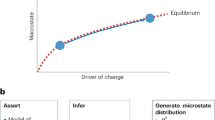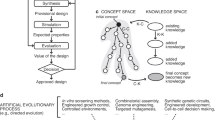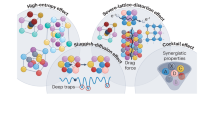Abstract
THE results of a large number of tension tests on nominally identical test pieces can conveniently be represented by a frequency curve in which the ordinate gives the frequency of occurrence of test pieces the strength of which is represented by the abscissa. The frequency of occurrence of test pieces the strength of which falls between the limits x + dx and x is given by f(x)dx. When the frequency curve is integrated with respect to x and between the limits — ∞ and x, an integral curve is obtained the ordinate F(x) of which gives the proportion of test pieces with strength less than x. The proportion of test pieces with strength greater than x is given by 1 — F(x). Where the frequency curve does not depart greatly from normality, its characteristics can conveniently be sumarized by its mean (μ), standard deviation (σ) and skewness √β1.
This is a preview of subscription content, access via your institution
Access options
Subscribe to this journal
Receive 51 print issues and online access
$199.00 per year
only $3.90 per issue
Buy this article
- Purchase on Springer Link
- Instant access to full article PDF
Prices may be subject to local taxes which are calculated during checkout
Similar content being viewed by others
References
Pierce, R. H., J. Text. Inst., 17 (1926).
Tippett, L. H. C., Biometrika, 17 (1925).
Sheppard, W. F., "B.A. Mathematical Tables", 7.
Author information
Authors and Affiliations
Rights and permissions
About this article
Cite this article
GURNEY, C. Effect of Length on Tensile Strength. Nature 155, 273–274 (1945). https://doi.org/10.1038/155273b0
Issue Date:
DOI: https://doi.org/10.1038/155273b0
This article is cited by
-
Latent Energy and After-glow in Flame Gases
Nature (1947)
Comments
By submitting a comment you agree to abide by our Terms and Community Guidelines. If you find something abusive or that does not comply with our terms or guidelines please flag it as inappropriate.



